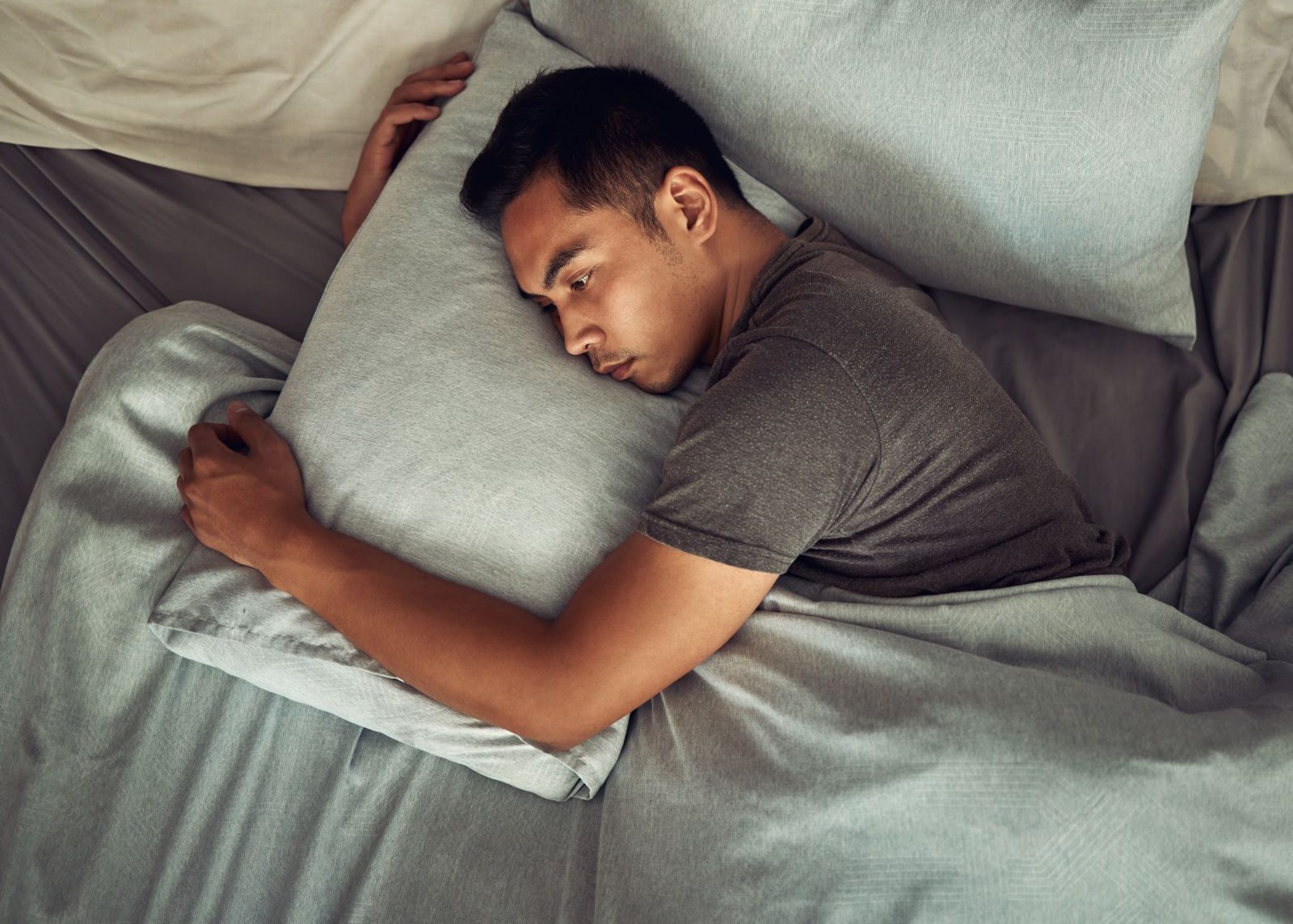<< Back
It’s Time to Hit Snooze on These 5 Sleep Myths

January 17, 2023
“I stayed up way too late last night – I’ll just make up for it this weekend.”
Trying to get the right amount of sleep each night can be, well, exhausting. Sleep is the one chance to restore and refresh our bodies and minds, yet the average person fails to get enough regularly – and even fewer understand how much “enough” really is.
The result is sleep deprivation, which can be a serious drain on our health and mental acuity. But Jay Kenkare, MD, a Hartford HealthCare sleep disorders specialist, is here to put five common sleep myths to bed.
> Not getting enough sleep? Connect with a Sleep Care Center
1. Everyone should get 8 hours of sleep each night.
People don’t need the same amount of sleep any more than they need the same amount of food to survive.
“There have been very large studies to determine the right amount of sleep for adults. Some studies say 7 to 8 hours is optimal, others point to 7.5 to 8.5 hours as the typical requirement for most of us,” Dr. Kenkare says. “We now strongly believe that the amount of sleep that an individual requires is genetically encoded and we do not know how to change this.”
2. I’ll need the same amount of sleep all my life.
Genetics might determine how much sleep we need, but age is also a factor. The average infant, Dr. Kenkare says, needs 12 to 16 hours of sleep. Children up to age 12 require between 9 and 12 hours. Teenagers actually need the 8 to 10 hours they spend in bed. By adulthood, that physical need slips back to between 7 and 8 hours.
“Children require more sleep because they are growing,” he says. “Sleep is an important time when energy is restored, growth and repair occurs and developmental hormones are released, all of which are important factors for children.”
3. Naps will ruin my sleep pattern.
If you’ve missed some sleep at night, naps can be a great chance to build your bank back, Dr. Kenkare notes. The key is when you snooze and for how long.
“Usually there is a lull in our circadian rhythm (internal clock) in the early afternoon, making that a good time for a nap. For most of us, a 20- to 40-minute nap is the sweet spot. This limited length prevents us from getting into a deep sleep,” he adds. Deep sleep during naps can make you feeling groggy during the day, and could cause difficulty falling asleep at night.
4. Oversleeping on weekends is fine.
Getting too much sleep, even if you’re trying to play catch-up, is not a good thing either, says Dr. Kenkare, who recommends aiming for the right “dose” of sleep each night.
“We need the right amount of sleep, but to be healthy, we also need the right amount of activity. If we are lying in bed for too long, it can limit our ability to be as active as we need to be for our physical and mental health,” he says.
5. I’ll catch up on sleep someday.
“An ongoing lack of sufficient sleep has a wide range of negative health consequences – it can impact cardiovascular health, weaken our immune systems, affect our metabolism, lead to weight gain, stress our mental health and put us at risk for depression and anxiety,” Dr. Kenkare warns. “For most of us, lack of sufficient sleep reduces our quality of life and makes us feel lousy.”
While a lack of sleep can often be attributed to external factors – such as screen time, an irregular sleep schedule, or diet, to name a few – a sleep disorder could also be the culprit. If you are consistently struggling to get the right amount of sleep, an expert might be able to help.